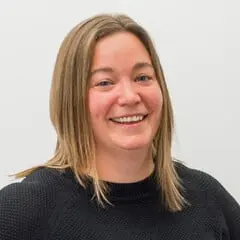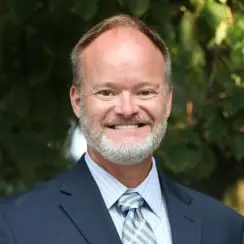 | 1 LU / HSW |
 | 1 LU / HSW |
The most heartbreaking gap in our country’s mental health support system is between inpatient psychiatric facilities and the public school system. For kids struggling with mental health issues, the journey from 24/7 support to a school setting is not an easy one. This journey demands a waystation—a day treatment center where kids can continue to receive mental health support while preparing for the transition back into regular school without loss of ongoing active education to continue their academic growth. In the fall of 2023, Colorado’s Cherry Creek School District is opening Traverse Academy, the nation’s first school district-owned and -operated day treatment center. Part school and part mental health crisis center, the project required an unusual blend of healthcare and educational architecture. Without any obvious precedents, the multidisciplinary team built the program from the bottom up. Led by Jessica Blanford, AIA, and Kasia Bulkowski, AIA, of MOA ARCHITECTURE with Dr. Tony J. Poole, Assistant Superintendent of Special Populations at Cherry Creek School District, this session will explore how the team engaged various stakeholder groups to determine the goals for the project; how we developed a program from these efforts; and how the design effectively blends healthcare requirements (including ligature-resistant design) with the principles of 21st-century learning environments.
Learning Objectives:

A Principal at MOA, Jessica has over a dozen years of PK-12 educational design experience. She is well-versed in everything that goes into the development of forward-thinking, healthy, and flexible learning environments, with expertise ranging from leading collaborative Design Advisory Groups to the complex coordination of construction administration. She has delivered educational projects for public, private, and charter school clients across the Mountain West region.

As an Associate Principal at MOA, Kasia works on a wide-ranging portfolio of projects, including community health clinics, learning environments, recreation centers, and historic preservation work. Kasia excels at designing projects with complex programs and unusual requirements. She focuses on how design of the built environment can have a positive, lasting impact on our communities. She promotes the use of emerging design and construction technologies in her projects, seeking to leverage the latest tools and innovations to improve communication, coordination, and technical problem-solving throughout design and construction.

With more than 30 years in the Cherry Creek School District, Tony Poole started in CCSD as an eighth-grade social studies teacher at Prairie Middle School in 1989. Fast forward three decades. Poole has held a wide variety of administrative roles in Cherry Creek Schools, from serving as assistant principal at Prairie, the school where he started his career, to opening Sky Vista Middle School as principal and serving for nine years. His professional path would take him to the district’s administrative ranks; in various roles, Poole has helmed the district’s Student Achievement Services Department, which includes a broad population of students that range from preschool to age 21 and those enrolled in an array of special education programs. As Assistant Superintendent of Special Populations, Poole will has a hand in the education and enrichment of thousands of students across the spectrum of learning styles and backgrounds. He oversees the departments of Special Education, Advanced Academic and Gifted and Talented Services, Mental Health, Nursing, Preschool and Language Supports and Services at buildings across CCSD’s 108 square miles.
This track focuses on Resiliency and addresses how learning environments support the development of students and communities that have the strength and flexibility to withstand adversity and adapt to change. The COVID-19 pandemic demonstrated the essential role that schools have in stabilizing communities during a time of crisis. How do schools support the development of strong community culture among teachers and students? How do schools foster physical and mental health and wellness to ensure all are ready and supported to learn? How do we create learning environments that are strong in intent yet adaptable to change? How do we learn from what does not work and further, learn to take risks daily to expand our comfort zone? What can we learn from research and our responses to past events to inform how to build toward a resilient future where we can withstand what crises and challenges the future brings? Topic areas, seen through the lenses of both Art and Science, include sustainability, physical and mental health, community, school climate and culture, safety, and security.
Primary Core Competency
Educational Visioning: Exhibits an understanding of best and next practices related to educational leadership, programming, teaching, learning, planning and facility design. Establishes credibility with educators, community members and design professionals while conceiving and leading a community-based visioning process. Demonstrates the ability to articulate the impact of learning environments on teaching and learning and uses that ability to facilitate a dialogue that uncovers the unique needs and long-range goals of an educational institution and its stakeholders – translating that into an actionable written/graphic program of requirements for the design practitioner.